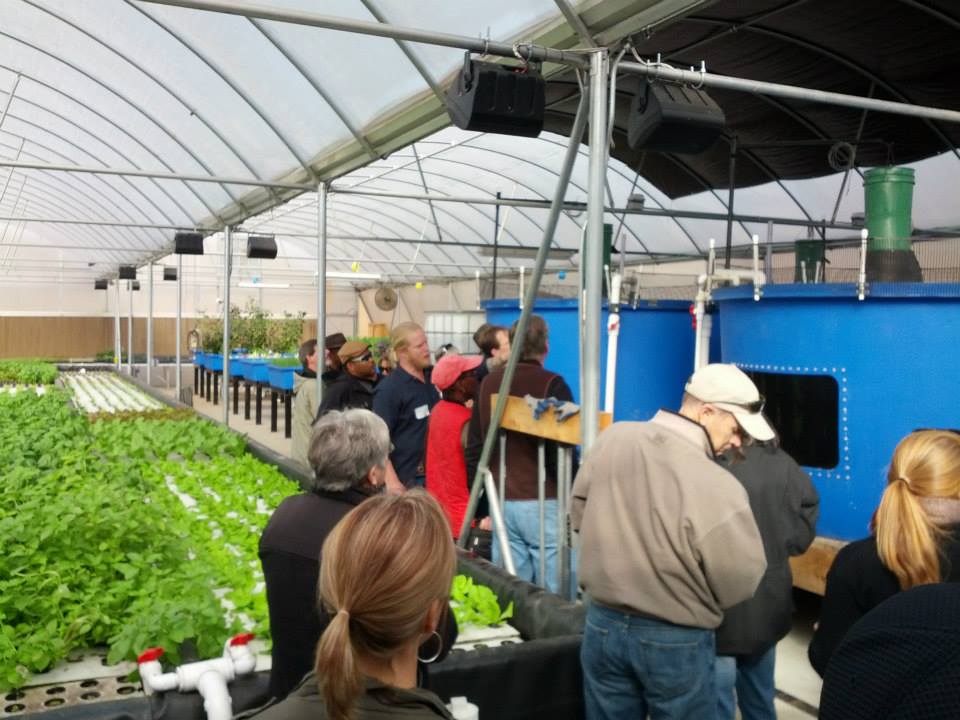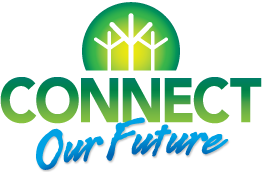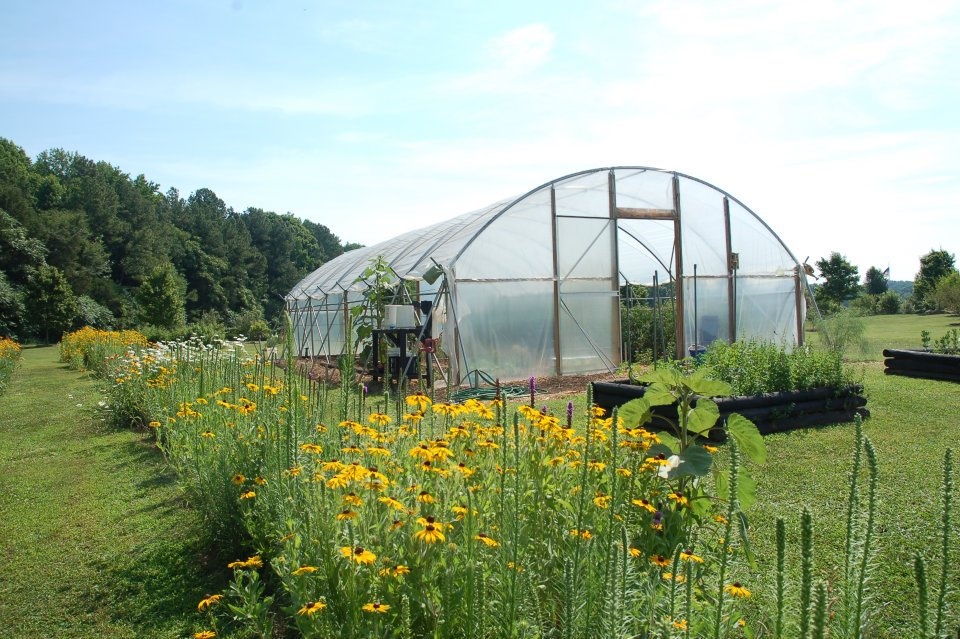A local food council, or food policy council, is an organization comprised of community members from various sectors within the food system including health officials, farmers, local food processors, local food distributors and retail outlets, farmers’ markets, restaurants, farm preservation advocates, cooperative extensions and local government to facilitate partnership, provide learning and growth opportunities, and offer and promote policy recommendations that can improve the local economic conditions for farming and access to local foods.
Why is this important to your community?
Residents of the CONNECT region spend $763 million each year on fresh fruits and vegetables that can be grown locally. However, farms in the region only produce roughly $100 million of the same fruits and vegetables residents are already buying. Food councils can help to bridge the gap between what farmers are producing and what consumers want to buy. This ensures that local farms remain viable and residents have greater access to fresh, healthy food. Food policy councils can help with developing processing and distribution networks, expanding retail outlets, and promoting local foods. Some of the other tools included in the CONNECT toolkit – such as Voluntary Agriculture Districts and Direct Farm to Business Marketing – also seek to improve the fiscal sustainability of local farms.
Skip directly to
How Does It Work?
Resources
Using the Tool
Partners
Where Has It Worked?
Where is it appropriate to use?
- Parks and Open Space
- Businesses
- Institutions
What priorities does it address?
What other tools are related?
- Business and Education Training for Farmers
- Farm to Table
- Heritage and Agri-Tourism
How does it work?
Local food councils, or food policy councils, serve to facilitate a community-wide conversation about improving local food systems by emphasizing ties between fresh food, health, natural resources, and economic development of agriculture. Councils recruit community members from various sectors within the food system as noted above and facilitate conversations, partnerships, learning opportunities, and strategic planning to address gaps and opportunities for strengthening the food system. Food policy councils also can offer policy recommendations to local and state governments on actions that that can improve the local economic conditions for farming and for food access.
Ready to get started?
Using the Tool
- Recruit a group of interested community members representing cooperative extensions and local governments, public health and social service organizations, local restaurants and food outlets, agriculture and business organizations, farmers, and other interested partners to form the nucleus of a local food council. Depending on the level of support and cohesion, the group can either decide its structure and relationship to local government right away, or begin working together with a separate organization identified as convener or facilitator, and formalize their structure later. Eventually, the group will need to:
- Agree on the structure of the council – Will the council be independent of government, a network of interested partners rather than a defined council, an informal partnership with local government, or a formal organization working with local government?
- Set the scale of the focus area – a single community, county, or a region
- Conduct a broad-brush assessment of the local food system and agricultural economy in the area of focus, led by the emerging food policy council (consider an inventory or assessment of the sustainability and profitability of farms within your region utilizing the farm census and stakeholder interviews). This can be done with help from planning staff and Cooperative Extension even before the council is formally organized, if another organization is willing to act as convener and facilitator.
- Based on the findings, the council should:
- Determine the priority issues the council will address (economic sustainability of farms, health, agri-tourism, potential local regulatory barriers, etc.).
- Forge and facilitate partnerships within and outside of the region to promote local agriculture.
- Create a series of educational opportunities for farmers and agribusiness owners.
- Set policy recommendations and develop plans
- Work with local governments as needed to adopt plans and to implement recommendations.
- Seek policy, budgetary, and partnership support from local governments, when appropriate.
Where has it worked?
Catawba Farm & Food Coalition - Chester, Fairfield, Lancaster, Union, and York Counties, SC
About the Program
The counties within the Catawba region have been adversely affected by increased globalization, the decline of the local textile industry, and the national economic downturn. As a result, the Catawba Farm & Food Coalition, a non-profit organization, was formed by community members interested in promoting the local, fresh food movement as a method of increasing economic opportunity and overall health. The Coalition works to develop strategies that address the long term viability of the regional economy by identifying regulatory barriers.
Why it works
The Catawba Farm & Food Coalition is engaged in a number of community-based strategies to ensure the sustainability of the region’s food system and agricultural heritage. These strategies include sustainable agriculture education, agribusiness development and diversification, strategic partnerships and planning, and new local food system marketing. The Coalition provides farmers with information about programs and innovative methods to ensure the success and profitability of local agriculture; helps reduce regulatory barriers for development of agribusinesses; and regularly meets with stakeholders and partners to work on strategies to attract investment to the region and support the triple bottom line of sustainability (the economy, environment, and social well-being). It also develops new ways to market local foods and the local agriculture community including the Catawba Fresh Market, the Catawba Regional Ag + Art Tour, farm-to-school programs, and promotional materials.
http://www.clemson.edu/extension/community/catawba/programs/localfood/
Upper PeeDee Farm and Food Council (UPFFC) - Anson, Montgomery, and Stanly Counties, NC
 Image Source: Upper Pee Dee Farm and Food Council.
Image Source: Upper Pee Dee Farm and Food Council.
Contact
Go to https://upffc.wordpress.com/council-members/ for contact information for each county
About the Program
The Upper PeeDee Farm and Food Council was established to encourage, support, and coordinate the local farm and food system through:
- Agriculture – Strengthening the economic vitality and viability of farming; promoting a vibrant community of farmers; maximizing opportunities for farms of all sizes; searching out mentors and farm land available for new farmers; and supporting farmland protection
- Economic Development – Enhancing the broader economic viability of local and regional farm and food systems; increasing farmer profitability through better marketing, aggregation and distribution to markets; and increasing the number of local food and agriculture jobs
- Education – Promoting the education and understanding of farm and food systems, agriculture, and environmental protection; and educating new small farmers about growing local food
- Accessibility – Promoting access to and distribution of affordable, nutritious food
- Health – Promoting improved public health by broadening access to locally produced food and providing education on nutrition, food preparation and preservation, and safe food-handling practices.
The three County Commissions endorsed the FFC vision and mission with resolutions in the fall of 2012.
Why it works
A Council of five representatives from each county from the following categories: Farmer; Government Official/Economic Development; Public Health/Medical Professional; Education Representative; and Interested Individual, plus one representative from Union County. A Director (volunteer) supports the Council part-time.
http://upffc.wordpress.com
- Farm to Table
- Businesses



